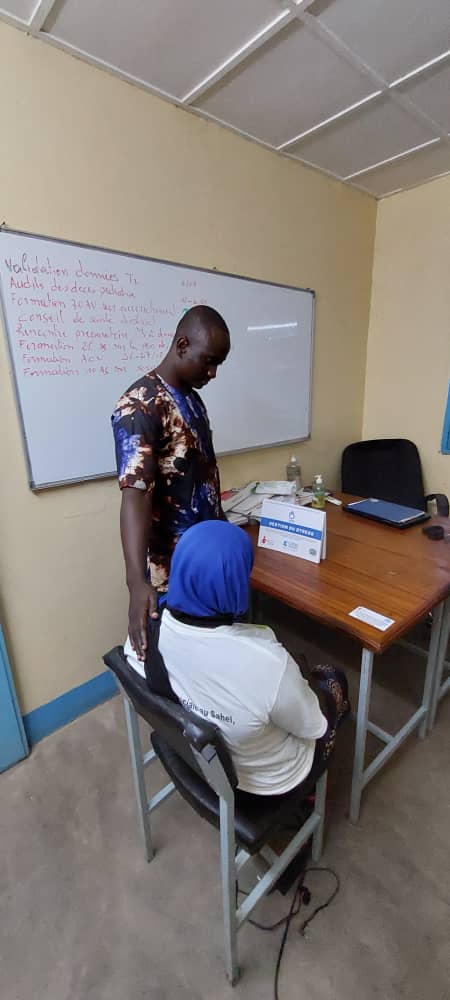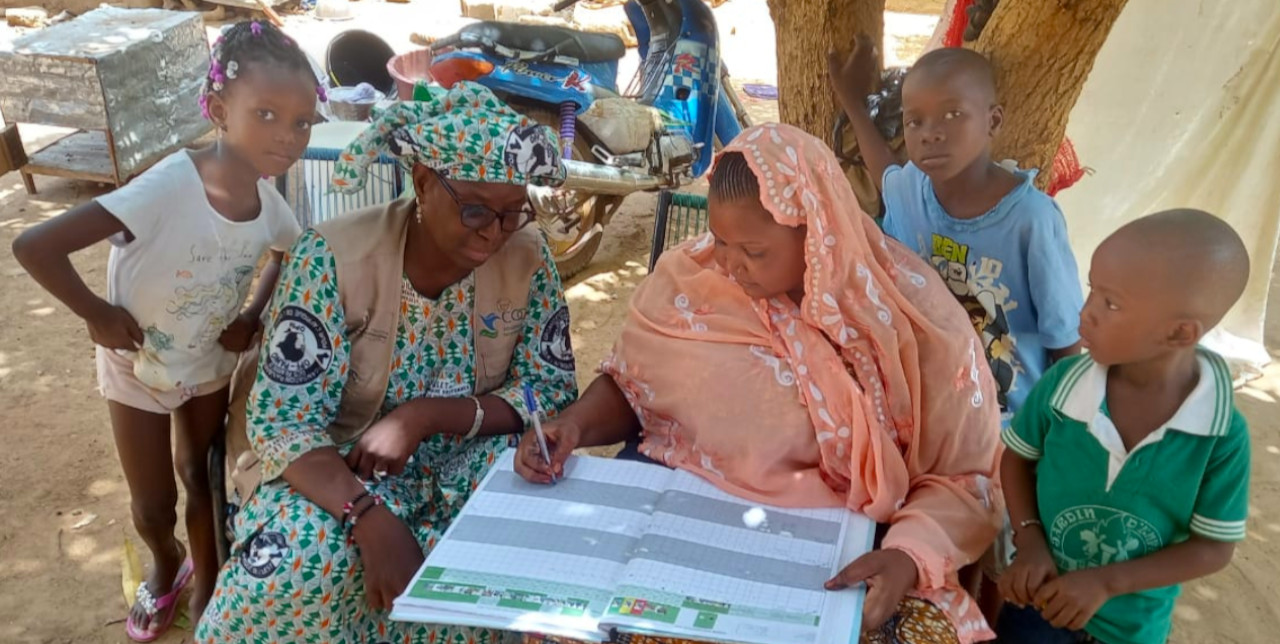24-11-2022 | di COOPI
Burkina Faso. Supporting the mental health of crisis-affected populations
Aminata is a young woman, 32 years old and the mother of four children. A year ago, she saw her village completely in flames, was robbed of her livestock and lost several relatives due to the violence caused by the armed conflicts afflicting Burkina Faso, which also reached her province, Oudalan.
The situation was untenable and we were forced to flee to the town of Gorom-Gorom. We came here without anything except what we were wearing that day. I was not sure we would get here unharmed.
Everything that Aminata had to go through significantly compromised her mental health: in Gorom-Gorom she suffered from insomnia, was completely disoriented, refused to eat and speak, and sometimes, due to intrusive and involuntary traumatic memories, took on very aggressive attitudes. Promptly, her loved ones decided to seek psychological support provided by the Gorom Gorom Outpatient Medical Centre. After three counselling sessions, a psychological follow-up and taking appropriate medication, Aminata gradually regained her mental wellbeing, managing to sleep at least five hours a day and to relate more serenely with friends and relatives.
Today, I don't know how to thank you, because I came to you empty and lost in my thoughts, suffering greatly in my conscience. You listened to me and gave me medicine that helped me a lot. In the family I have resumed housework and I often meet up with friends and relatives

The crisis affects almost all regions of Burkina Faso, with a peak in the Sahel, Centre-North, East, North and Boucle du Mouhoun regions. This situation has caused a sharp increase in the number of internally displaced persons (IDPs) in recent years: while in January 2019 there were less than 50,000, by April 2022 the country had more than 1.5 million, or more than 7% of the total population. In this context, since 1 June 2022, COOPI - Cooperazione Internazionale has been active in Burkina Faso with the "Integrated health and nutrition support programme for populations affected by the security crisis in the Gorom-Gorom health district", funded by ECHO, in partnership with the NGO LVIA and the CRUS association. The project aims to improve the well-being of the populations affected by the humanitarian crisis and provide physical and mental health care. In fact, 27 health workers were trained to improve the management of mental illness and another 80 received training in psychological first aid. All these health workers also received materials to facilitate awareness-raising, identification and assistance to the most vulnerable people.




 Burkina Faso
Burkina Faso